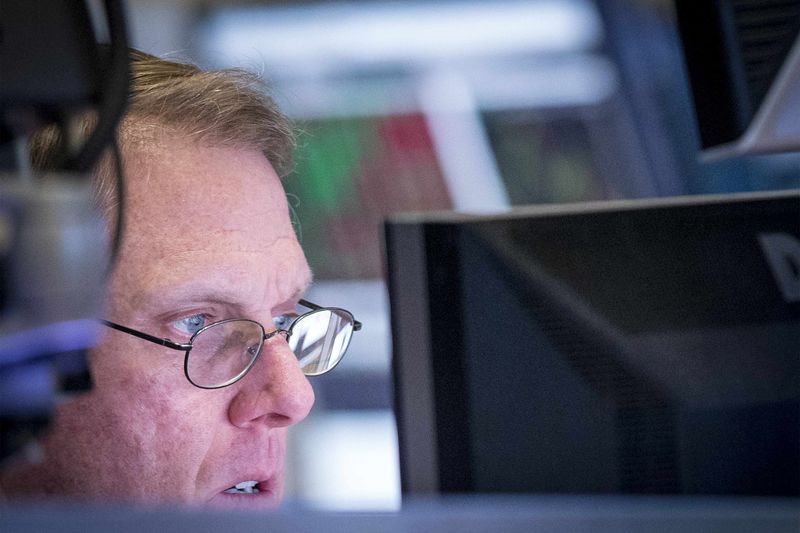The technology sector carried the TSX during the first COVID year. Canada’s primary stock market would have ended in the red if not for the strength of tech stocks. Unfortunately, in 2021 and currently, technology is the worst-performer among the 11 primary sectors. The situation of its constituents is similar to the beating of energy stocks in 2020.
As of March 18, 2022, the energy sector is riding high with its 35.33% year-to-date gain, while technology is losing by 19.28%. Recovery might take longer if rising inflation and geopolitical tensions persist. However, not everything is lost in terms of growth. Technology trends and innovation are still in the horizon.
For investors looking for long-term growth, two tech-heavy exchange-traded funds (ETFs) are attractive options. More than 70% of the holdings in each fund consist of tech companies with high-growth potentials. Vitali Mossounov, VP, director and global technology analyst with TD (TSX:TD) Asset Management (TDAM) believes the tech firms will deliver superior earnings in due time.
International diversification Many tech stocks, including sector leader Shopify (TSX:SHOP) (-49.87% year to date), trade at deep discounts today. Nuvei (TSX:NVEI) (+10.63%) is back in positive territory, but the spike could be temporary given the overall negative sentiment in the tech sector.
While most of the top tech names are on sale, TD Global Technology Leaders Index ETF (TSX:TEC) and TD Global Technology Innovators Index ETF (TSX:TECI) offers international diversification. TDAM is the portfolio adviser of both.
According to Mossounov, profitable tech leaders make up TECI. His team was responsible for designing a custom index that includes the world’s largest tech stocks. TECI isn’t as popular as TECI but it should be soon. Would-be investors gain exposure to fast-growing, more disruptive technology firms.
Tech innovators TECI seeks to track the performance of a technology innovators index. The companies are mostly innovators with higher annual growth rates in revenue, return on invested capital, and operating margin expansion vis-a-vis their peers. Currently, the benchmark index is the Solactive Global Technology Innovators Index.
Regarding the sector mix, technology stocks have the largest percentage weight (70.5 %), followed by consumer services (10.2%), and consumer goods (5.6%) services. On fund geography, U.S. companies (85.5%) have the most representation, followed by European Union (6.9%), Japan (4.4%), and Canada (1.3%).
The top three holdings are Apple (NASDAQ:AAPL) (14.29%), Microsoft (NASDAQ:MSFT) (11.67%), and Amazon.com (NASDAQ:AMZN) (7.44%). TECI carries a medium risk-rating, while the basket has 295 holdings. The current share price is $26.39, with a corresponding dividend of 0.6%. Performance-wise, the total return in 2.87 years is 81.3% (23.03% CAGR).
Disruptive technology Like TEC, the relatively new TECI has a medium risk-rating. At $7.14 per share (-25.8% year-to-date), the dividend yield is 0.20%. TDAM’s investment approach is to invest in and hold a proportionate share of the constituent securities of the Solative Global Technology Innovators Index.
Currently, there are 111 assets in the basket. Technology stocks (74.8%), are the dominant holdings, followed by consumer (9.3%) and financials (8.7%). U.S. stocks (65.9%) are more than half of the fund, followed by European Union (9.9%), and Canada (7.5%). Advanced Micro Devices (NASDAQ:AMD), Shopify, and Snowflake are the top three holdings.
Less-risky TEC and TECI are best for investors who want exposure to the technology sector despite its underperformance. The ETFs are less risky because of the diversified holdings.
The post 2 Tech-Heavy ETFs to Buy for Growth Investors appeared first on The Motley Fool Canada.
John Mackey, CEO of Whole Foods Market, an Amazon subsidiary, is a member of The Motley Fool’s board of directors. Fool contributor Christopher Liew has no position in any of the stocks mentioned. The Motley Fool owns and recommends Nuvei Corporation, Shopify, and Snowflake Inc. The Motley Fool recommends Advanced Micro Devices, Amazon, Apple, and Microsoft.
